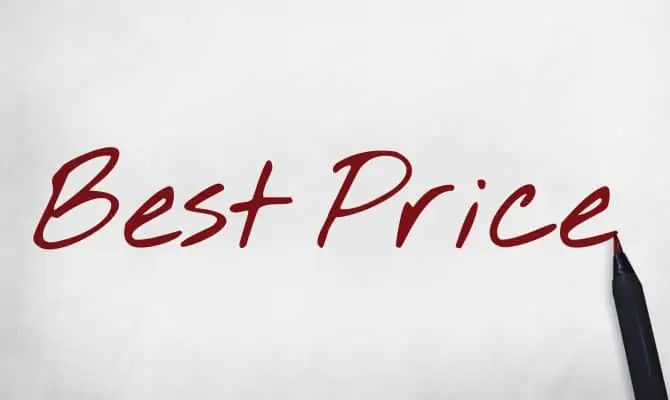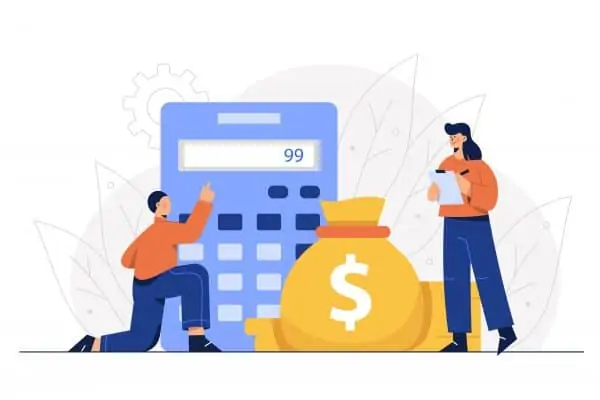
Each brand, each product is positioned by a completely separate pricing strategy. Pricing strategy is the trump card, determining revenue growth, customer retention, and the reputation of a brand in the market.
Let’s explore 10 product pricing strategies that are currently being used by all major businesses around the world, to be able to apply in their own practice.
What is Pricing Strategy?
Pricing strategy is one of the most important, high-level strategies in Marketing. The goal of businesses is to determine an attractive, most competitive price for their product/service in the market. You may have good products, a reliable dropshipping agent to source the cheapest products for you. But you need to set the right price for your products as well. Pricing is one of the 4 most important elements of the Marketing Mix, including Product, Price, Place, and Promotion. These are the factors that guide and determine the marketing activities of a brand.
The importance of pricing strategy in business

Product pricing is a relatively complex process. In addition to the business must calculate the cost how to offset the costs related to product production, human resources, marketing, distribution, sales; They also have to determine the price to ensure the image and reputation of the brand in the market, as well as being competitive enough with competitors. To optimize profits and retain customers to use products/services, businesses are forced to choose and decide on an appropriate pricing strategy. The 10 pricing strategies below will help you achieve that goal.
10 effective pricing strategies that will help you find the best price for your products

1. Penetration Pricing
Penetration Pricing is a strategy by which businesses offer a product/service at a low price (or even for free) for a certain period of time (usually a few months). This strategy is applied by businesses to increase market share, or attract target customers to start using and familiarizing themselves with the brand.
2. Economy Pricing
Economy Pricing is a strategy by which businesses offer a fixed product at a low price. Usually, businesses will limit their communication and promotion budgets when applying this pricing strategy. The purpose of this pricing is for the business to recover capital in the products/services during the off-season. We often see this strategy in the transportation service industries, trading in seasonal goods (moon cakes, Christmas cakes, …).
3. Psychological Pricing
Psychological Pricing is a pricing method that assesses the psychology of consumers. The business that applies prices according to the above example explains that: Consumer psychology when hearing the price of $99 will feel that it is not as expensive as the price of $100. That’s yet another example of customer-centric pricing, rather than traditional logic. Users often look at the price and quantitative benefits of the product they enjoy when buying a product, instead of spending time researching whether at that price, the product quality is commensurate or not.
4. Product group pricing strategy
This is a strategy where businesses price according to a package of complementary, or related products, and it is also a way for businesses to take advantage of the revenue value per customer. When they realize that buying a bundle of products is cheaper than buying each product separately, they tend to choose to buy the whole cluster at once. This policy can be applied to businesses in a variety of fields, from restaurants to technology.
5. Optional- feature pricing strategy
When applying this pricing policy, businesses often charge low prices for the main service and raise prices for additional services/products. This pricing policy is often popular with low-cost transport businesses.
6. Captive pricing strategy
Captive pricing is a policy where businesses provide prices for ancillary products for the main product. Without these by-products, the main product cannot be used. Of course, this policy will help businesses maximize revenue from customers.
7. Promotion pricing strategy
To stimulate customers to buy products, businesses can use promotional policies (such as discounts, vouchers, coupons, or gifts) to price products.
8. Geographical pricing strategy
This pricing policy is quite simple: Each geographical area and business sets a different price, in accordance with the income and spending levels of the people there. This can come from the needs and aspirations of customer segments. Another reason is that for each region, businesses have to pay different costs, for importing raw materials, labor, distribution, transportation, tariffs, exchange rates…
9. Brand pricing strategy
In many cases, businesses charge high prices for products because of the image of the brand. As the general public thinks the iPhone is the symbol for the high-end phone product line. If the price is too low for the product, the image and brand awareness from the public may be damaged, possibly causing some customers to stop using the company’s products/services. This pricing method is suitable for brands that provide luxury products for high-end customers, such as jewelry, hotel accommodation services, phones in the upper segment, etc.
10. Value product pricing strategy
Sometimes it’s not the business, but the market itself that sets the price for the product. There are many external factors that can affect the price of a product, such as market supply and demand, competitors.
Conclusion
Setting a price for a product in the market is not a simple job. You have to consider many factors before fixing the price of the product, such as input costs, business image, competitors, market demand, etc. As a brave manager, you need to see where your product is in the market, make the right decisions, pricing strategies and make appropriate adjustments to the times. Hope this information will help you a lot in building and developing marketing activities in the future.

Pingback: Best shopify spy tool on shopify stores for free in 2023 - Dropship Success Tips